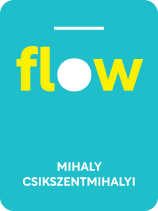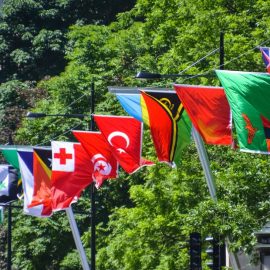

This article is an excerpt from the Shortform book guide to "Flow" by Mihaly Csikszentmihalyi. Shortform has the world's best summaries and analyses of books you should be reading.
Like this article? Sign up for a free trial here .
What is a flow experience? What are the three benefits of frequent flow experiences?
When you feel like your endeavors are succeeding and your energy is flowing in the direction you choose, Csikszentmihalyi calls these “flow experiences.” Choosing to do activities that promote the flow experience often has three benefits.
Continue below to learn about the flow experience.
What Is a Flow Experience?
When you get feedback—information—that affirms your goals, working on them is easier: You feel you’re doing well and making progress, which dissipates your worries. This is the opposite of psychic entropy, or disordered consciousness. Your experience is in line with your self and its goals, and you can devote attention where needed.
The Benefits of Flow
Csikszentmihalyi calls these kinds of experiences flow experiences because people describe feeling like they’re floating and their energy is flowing in the direction they choose. It still requires concentrating on directing your attention where you want it to go, but it feels right and takes less effort because it’s in line with your goals. Doing activities that produce flow experiences as frequently as possible has three benefits:
- You become more self-confident because you feel skilled and capable, and you’re investing energy toward goals you’ve deemed worthwhile. As you build self-confidence, you’re able to accomplish more for yourself and society.
- You improve your experience of life. Even boring tasks are rewarding when made to align with your goals.
- You become a more complex individual. Complexity has two parts. First, you feel a sense of differentiation because you’ve done something that makes you feel capable and unique. Second, you feel a sense of integration: Your consciousness is well-ordered, and you feel in balance with the different parts of who you are. Note: Differentiation and integration need to be balanced. If you were only differentiated, you’d achieve great things but might be a self-centered person; if you were only focused on integration, you would value being connected with others but wouldn’t act independently.
Flow Experience Examples
Example 1: Rico Medellin is a factory worker who enjoys optimizing how quickly he can do his task, which should take 43 seconds. By refining how he moves and uses tools, he has improved his time to an average of 28 seconds per unit. He does it partly so he can receive a bonus, but mostly to prove to himself that he can. Knowing that he’ll eventually reach the lower limit on how quickly he can do the work, he’s taking courses on electronics to find other work where he can enthusiastically apply himself.
Example 2: Pam is a young lawyer at a law firm. She spends most of her days doing research or making action plans for more senior partners. She is so immersed in the work that she loses track of time and forgets to eat. Though she frequently encounters obstacles, she views them as challenges she can overcome.

———End of Preview———
Like what you just read? Read the rest of the world's best book summary and analysis of Mihaly Csikszentmihalyi's "Flow" at Shortform .
Here's what you'll find in our full Flow summary :
- Why people feel the happiest when they're in the "flow state"
- What activities and personality traits promote flow
- Why you may have a paradoxical relationship with work and leisure






